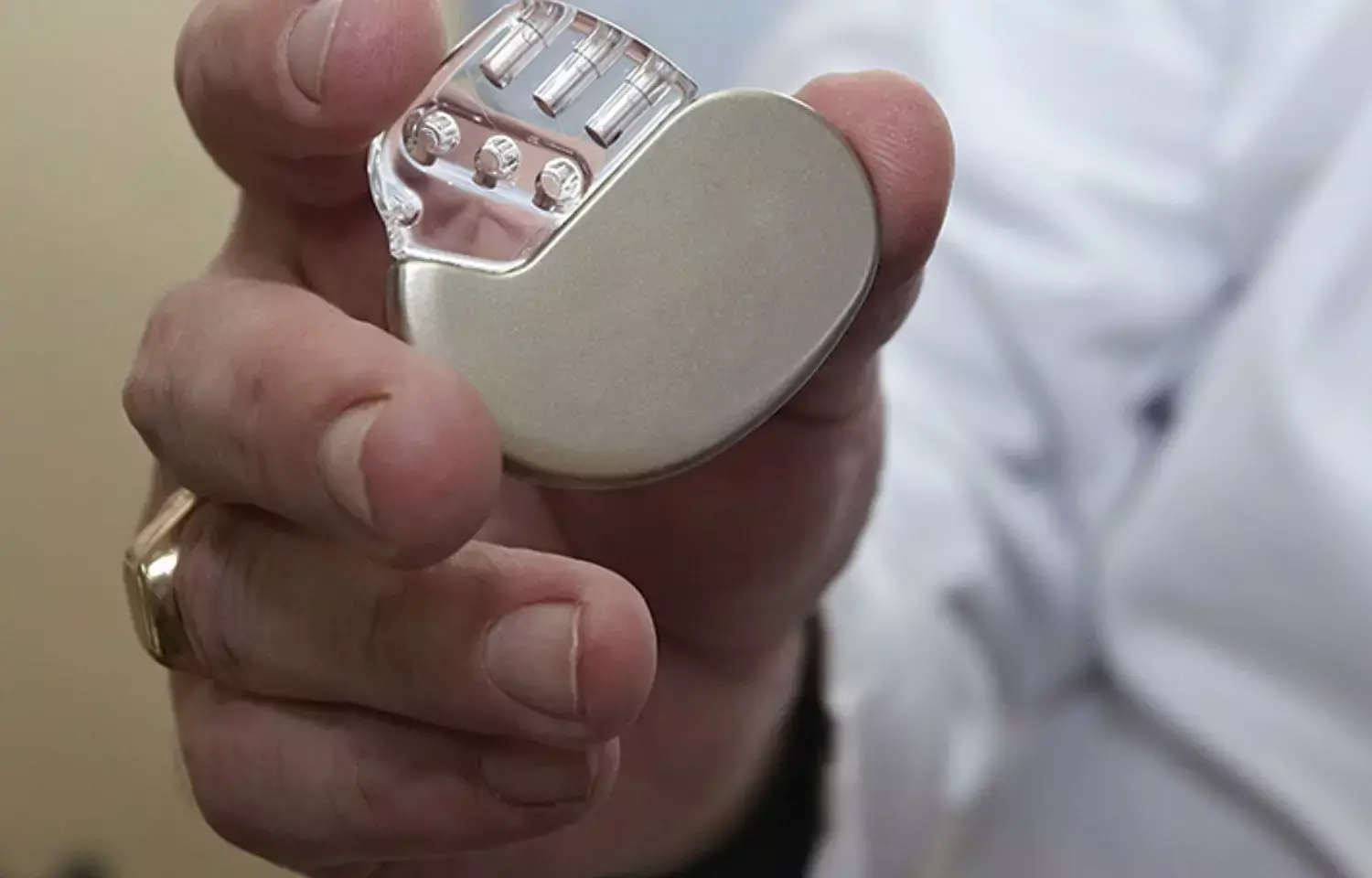- Home
- Medical news & Guidelines
- Anesthesiology
- Cardiology and CTVS
- Critical Care
- Dentistry
- Dermatology
- Diabetes and Endocrinology
- ENT
- Gastroenterology
- Medicine
- Nephrology
- Neurology
- Obstretics-Gynaecology
- Oncology
- Ophthalmology
- Orthopaedics
- Pediatrics-Neonatology
- Psychiatry
- Pulmonology
- Radiology
- Surgery
- Urology
- Laboratory Medicine
- Diet
- Nursing
- Paramedical
- Physiotherapy
- Health news
- Fact Check
- Bone Health Fact Check
- Brain Health Fact Check
- Cancer Related Fact Check
- Child Care Fact Check
- Dental and oral health fact check
- Diabetes and metabolic health fact check
- Diet and Nutrition Fact Check
- Eye and ENT Care Fact Check
- Fitness fact check
- Gut health fact check
- Heart health fact check
- Kidney health fact check
- Medical education fact check
- Men's health fact check
- Respiratory fact check
- Skin and hair care fact check
- Vaccine and Immunization fact check
- Women's health fact check
- AYUSH
- State News
- Andaman and Nicobar Islands
- Andhra Pradesh
- Arunachal Pradesh
- Assam
- Bihar
- Chandigarh
- Chattisgarh
- Dadra and Nagar Haveli
- Daman and Diu
- Delhi
- Goa
- Gujarat
- Haryana
- Himachal Pradesh
- Jammu & Kashmir
- Jharkhand
- Karnataka
- Kerala
- Ladakh
- Lakshadweep
- Madhya Pradesh
- Maharashtra
- Manipur
- Meghalaya
- Mizoram
- Nagaland
- Odisha
- Puducherry
- Punjab
- Rajasthan
- Sikkim
- Tamil Nadu
- Telangana
- Tripura
- Uttar Pradesh
- Uttrakhand
- West Bengal
- Medical Education
- Industry
Non-fasting strategy safe and effective for minimally invasive cardiac surgeries

Germany: For cardiac implantable electronic device ( CIED) procedures, a non-fasting strategy is beneficial to a fasting one in regards to patient's well-being and safety, state trial results published in the Europace.
Cardiac implantable electronic devices are used to correct abnormal heart rhythms. They have proven to be an invaluable tool in the practice of cardiology and their implantation rates continue to rise. The use of Minimal invasive cardiac surgeries for placement of such implants is increasing due to less bleeding, less trauma, fewer infections and a quicker recovery associated with them. Fasting before such surgeries helps prevent major complications, but there is no evidence to suggest that a shortened fluid fast results in an increased risk of aspiration, regurgitation or related morbidity compared with the standard 'nil by mouth from midnight' fasting policy. Data on the safety and efficacy of a non-fasting strategy in patients undergoing cardiac implantable electronic device (CIED) procedures are lacking.
Kerstin Bode, University of Leipzig, Germany conducted a randomized, single-blinded clinical trial to assess a non-fasting strategy compared with a fasting strategy regarding patient well-being and safety in CIED procedures.
Researchers enrolled 201 patients (non-fasting = 100, fasting = 101) with a mean age of 72.0 ± 11.6 years for the study. Patients were assigned to a non-fasting strategy (solids/fluids allowed up to 1 h) or a fasting strategy (at least 6 h no solids and 2 h no fluids) before the procedure and analysed on an intention-to-treat basis. The co-primary outcomes were set as patients' well-being scores (based on the numeric rating scale, 0–10) and incidence of intra-procedural food-related adverse events, including vomiting, perioperative pulmonary aspiration, and emergency intubation. Renal, haematological, and metabolic blood parameters and 30-day follow-up data were also gathered.
Key findings of the study,
• The summed pre-procedural patients' well-being score was significantly lower in the non-fasting group[ P = 0.029], which was mainly driven by significantly lower scores for hunger and tiredness in the non-fasting group
• There was no report of intra-procedural food-related adverse events.
• Relevant blood parameters and 30-day follow-up did not show significant differences.
The authors conclude that a non-fasting protocol is non-inferior to a fasting protocol (current practice) concerning safety and patient well-being, in those undergoing cardiac device implantation procedures.
Future large-scale trials are needed to ensure maximal patients' comfort and safety and to facilitate and maximize patient flow, the authors wrote.
Kerstin Bode, Matthias Gerhards, Michael Doering, Johannes Lucas, et al. A randomized trial of non-fasting vs. fasting for cardiac implantable electronic device procedures (Fast-CIED Study), EP Europace, 2022;, euac081, https://doi.org/10.1093/europace/euac081
BDS
Dr. Hiral patel (BDS) has completed BDS from Gujarat University, Baroda. She has worked in private dental steup for 8years and is currently a consulting general dentist in mumbai. She has recently completed her advanced PG diploma in clinical research and pharmacovigilance. She is passionate about writing and loves to read, analyses and write informative medical content for readers. She can be contacted at editorial@medicaldialogues.in.
Dr Kamal Kant Kohli-MBBS, DTCD- a chest specialist with more than 30 years of practice and a flair for writing clinical articles, Dr Kamal Kant Kohli joined Medical Dialogues as a Chief Editor of Medical News. Besides writing articles, as an editor, he proofreads and verifies all the medical content published on Medical Dialogues including those coming from journals, studies,medical conferences,guidelines etc. Email: drkohli@medicaldialogues.in. Contact no. 011-43720751


